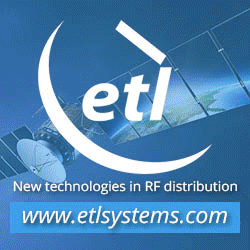Phase Four Wins U.S. Air
Force Contract for Electric Propulsion of
Satellites
April 8, 2021
Phase Four has secured a
contract with the U.S. Air Force for the
company's propellant-agnostic Maxwell thruster.
Under the contract, Maxwell will utilize iodine,
a new alternative fuel, to replace the costly,
legacy electric propulsion propellants in
high-performance commercial and defense
applications.
Under a new contract with
the U.S. Air Force, Phase Four’s
propellant-agnostic Maxwell thruster (pictured
here) will utilize iodine, a new alternative
fuel, to replace the costly, legacy electric
propulsion propellants in high-performance
commercial and defense applications.
"There is a growing need
for more options for advanced electric in-space
propulsion, to provide satellites with better
maneuverability and operability in space at an
affordable cost, and propellant flexibility
could provide new options for in-space
propulsion," said Dr. Dan Eckhardt, Electric
Propulsion Lead at the U.S. Air Force Research
Laboratory.
The hallmark of Phase
Four's versatile RF Thruster technology is its
flexible architecture, which can utilize
traditional noble gases and new alternative
sources ranging from iodine to water to air.
Together with the Air Force, Phase Four will
demonstrate major new advantages that the
Maxwell iodine-fueled engine can provide to
large satellite constellations, including:
Vastly lower propellant
costs
Increased satellite range
and lifetime on orbit, due to the ability to
store more fuel onboard, as iodine is 4x more
dense than traditional xenon propellants
Lower risk of debris
incidents, due to the elimination of
high-pressure storage
Increased sustainability,
due to the ability to decommission and
responsibly dispose of satellites at their end
of life
"Iodine is a promising
propellant, due to its densely storable nature,
lack of high-pressure components, and
performance potential, compared to traditional
noble gas propellants like xenon," said Phase
Four CTO, Umair Siddiqui. "More efficient
smallsat propulsion systems, such as an iodine
RF thruster, will enable new missions in remote
sensing, space surveillance, communications and
other areas."
Phase Four's project
received several letters of support from
industry and government agencies that anticipate
iodine-fueled propulsion engines will lower
costs and create new opportunities for
commercial and defense satellite operators.
Phase Four is also working
with other government customers to further
develop the Maxwell RF thruster to increase
performance for long-duration missions where
significant maneuverability is required. Phase
Four's RF thruster is simpler, smaller, lighter
and less expensive than legacy electric
propulsion systems, due to technical innovations
and the use of low-cost RF electronics developed
by the smartphone and wireless charging
industries. These improvements will enable
government and commercial space operators to
deploy critical mission capabilities in space at
a lower cost and faster cadence than currently
possible.
"As the space industry
rapidly expands between the Earth, Moon and
Mars, we need technologies that lower the cost,
shorten lead times and improve the quality of
mass-manufactured space hardware," said Phase
Four CEO Beau Jarvis. "With our RF Thruster and
support from the U.S. Air Force, Phase Four is
working to bring the industry lower cost,
mass-manufactured, high-performance satellite
engines."











